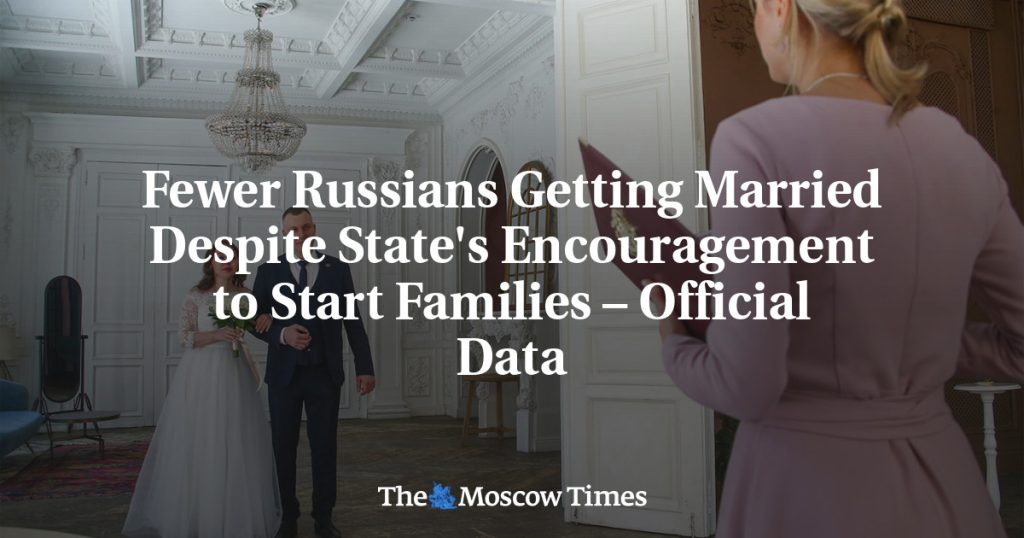Last year, Russia experienced a 10% decrease in the number of marriages registered, despite efforts by the state to encourage citizens to start families. Official data cited by RTVI revealed that around 950,000 marriages were registered in 2023, compared to 1.05 million the previous year, according to statistics from Rosstat. This decline was observed in every region of the country, with the sharpest decreases seen in ethnic republics such as Chechnya, the Chukotka autonomous district, and Dagestan.
In 2022, marriages surged following the Kremlin’s declaration of a “partial” mobilization of reservists for the war in Ukraine in September. Some regions even offered fast-track marriage registrations during this time. However, the partial draft and Russia’s invasion of Ukraine led to a mass exodus of Russians abroad. President Vladimir Putin has urged Russian women to increase the birth rate by reviving the practice of having large families. At an event organized by the Russian Orthodox Church, Putin called for families to have “seven, eight, or even more children” and stated that large families should become the norm in Russia.
RTVI pointed out that some of the regions that saw the biggest drops in marriages were also recognized by the Defense Ministry as being successful at recruiting contract soldiers. This correlation suggests that there may be a connection between military recruitment and marriage rates in certain regions. Rosstat has predicted that Russia’s population could decline from 146 million to around 130 million in the next two decades due to low birth rates and declining immigration. This projection underscores the importance of addressing the issue of declining marriage rates and birth rates in the country.
Despite efforts by the government to promote family formation, Russia continues to struggle with declining marriage rates. The reasons for this decrease in marriages are complex and may be influenced by a variety of factors, including economic challenges, societal attitudes towards marriage and family, and geopolitical events such as the war in Ukraine. It is clear that addressing the issue of declining marriages will require a multi-faceted approach that addresses both the societal and economic factors that contribute to this trend. Encouraging more Russians to start families and have children will be crucial in maintaining the country’s population and ensuring its long-term demographic stability.
The decline in marriages in Russia is a significant concern for the government, as it could have long-term implications for the country’s population and demographic trends. With projections indicating a potential decline in the population from 146 million to 130 million in the next two decades, addressing the issue of declining marriages and birth rates will be essential for maintaining the country’s demographic stability. President Putin’s call for larger families and his urging of Russian women to have more children are part of the government’s efforts to reverse this trend. However, addressing the complex factors contributing to declining marriages will require a comprehensive approach that considers social, economic, and geopolitical factors.















